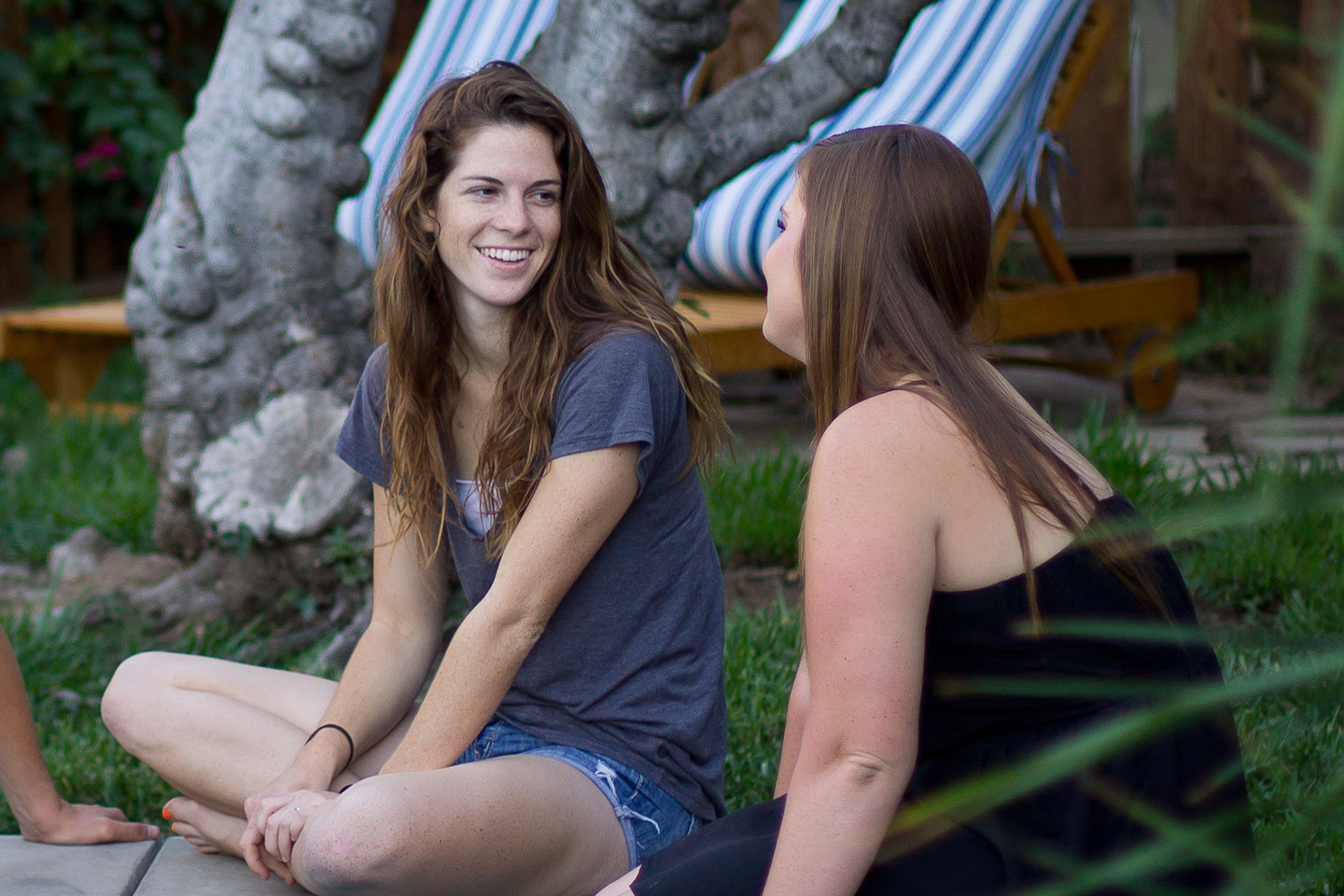It’s no secret that we live in a highly individualistic culture. In the midst of such a self-focused society, many are shocked to see others who choose to live in a community setting, placing a higher emphasis on “we” than “I.” Tom Crisp, a philosophy professor, defines an intentional Christian community as “a community of Jesus followers trying to relate to one another in a familial way as if an extended family.”
He actualizes this idea by living among other believers in a Brea neighborhood. For Crisp, New Testament professor Joe Hellerman and adjunct professor Larry Smith, living in an intentional Christian community is not only a personal lifestyle choice, but an option that they would encourage other believers to ponder as well.
Hellerman’s version of an intentional Christian community comes through “a more traditional local church setting.” While his church community doesn’t share all resources, they still practice serving other members in sacrificial ways. Friends at Hellerman’s church have done as much as remodeled his home while he and his family were on vacation and helped to put on a wedding for his youngest daughter.
A call to be known
Despite the fact he has been studying the social history of early Christians for more than 20 years, Hellerman still finds it challenging to completely resist today’s pressures to focus on the individual.
“We have been socialized to think it’s all about me and not all about us,” Hellerman said.
Hellerman recognizes two major advantages for couples that maintain intentional Christian community through a church body. Primarily, he says a couple’s marriage will be healthier if it is “known by others.” He speaks from experience, as he has met with mostly the same group of pastor elders since 1996.
“They know my family, they know my wife, they know my kids and there’s something really healthy about being known,” Hellerman said.
Loving thy neighborhood
Crisp has also seen the benefits of raising a family in an intentional Christian community. Crisp, his wife and two daughters live along with several other Christian families in a Brea neighborhood. Each family lives in a separate household, but all are within a one-block radius of the other families.
While a seminary student at Talbot, Crisp and his wife opened their home for a Bible study. Soon the group was sharing resources, prayer and “falling into family-like relationships.” Crisp attended a seminar on house-churching at Fuller Seminary, where author Robert Banks argued that the apostle Paul started close-knit communities to function as families.
“When we heard these ideas … the New Testament just started to come alive in a new way. Paul’s letters started to read very differently,” Crisp said.
Each week, the families in Crisp’s community share either a meal, a worship session or an adult prayer night. The men have a weekly Bible study and many of the women work together on spiritual formation projects. While the community doesn’t share a common purse, they pool money to run a grocery ministry at the Regency Inn in Costa Mesa.
The community has also been able to reach out to and serve others as new families move into the neighborhood.
“It’s a loving, supportive place and that turns out to be magnetic, even if you don’t share our religious sensibilities,” he said.
Reaching where no one dares to go
Smith, who teaches English and journalism classes, hosts an intentional Christian community that aims to reach out to nonbelievers as well. The community — known as Hollenbeck House — consists of Biola seniors or recent graduates who interact with members of the rough East LA neighborhood through service and friendships.
When new members move into the house, the Smiths pledge to “stay out of their hair.” Smith says the most rewarding part of hosting an intentional Christian community is to sit back and watch these young adults grow and discover what it is the Lord is calling them to.
“The intentional part [for my wife and me] is maybe actually jump-starting their life in such a way that they’ll jump ahead of where the Lord would have had them,” Smith said.
With three options for intentional living examined, and many more available to explore, the professors’ common hope is for students to think about all the possibilities for life after college.
Crisp recognizes that starting an intentional Christian community like his can be daunting since there aren’t many groups living out the faith in this way.
“My advice would be to not feel like you have to have a big group of people to start an intentional community with,” Crisp said. “If this is attractive to you … find one or two others who are interested and that’s all it takes.”







